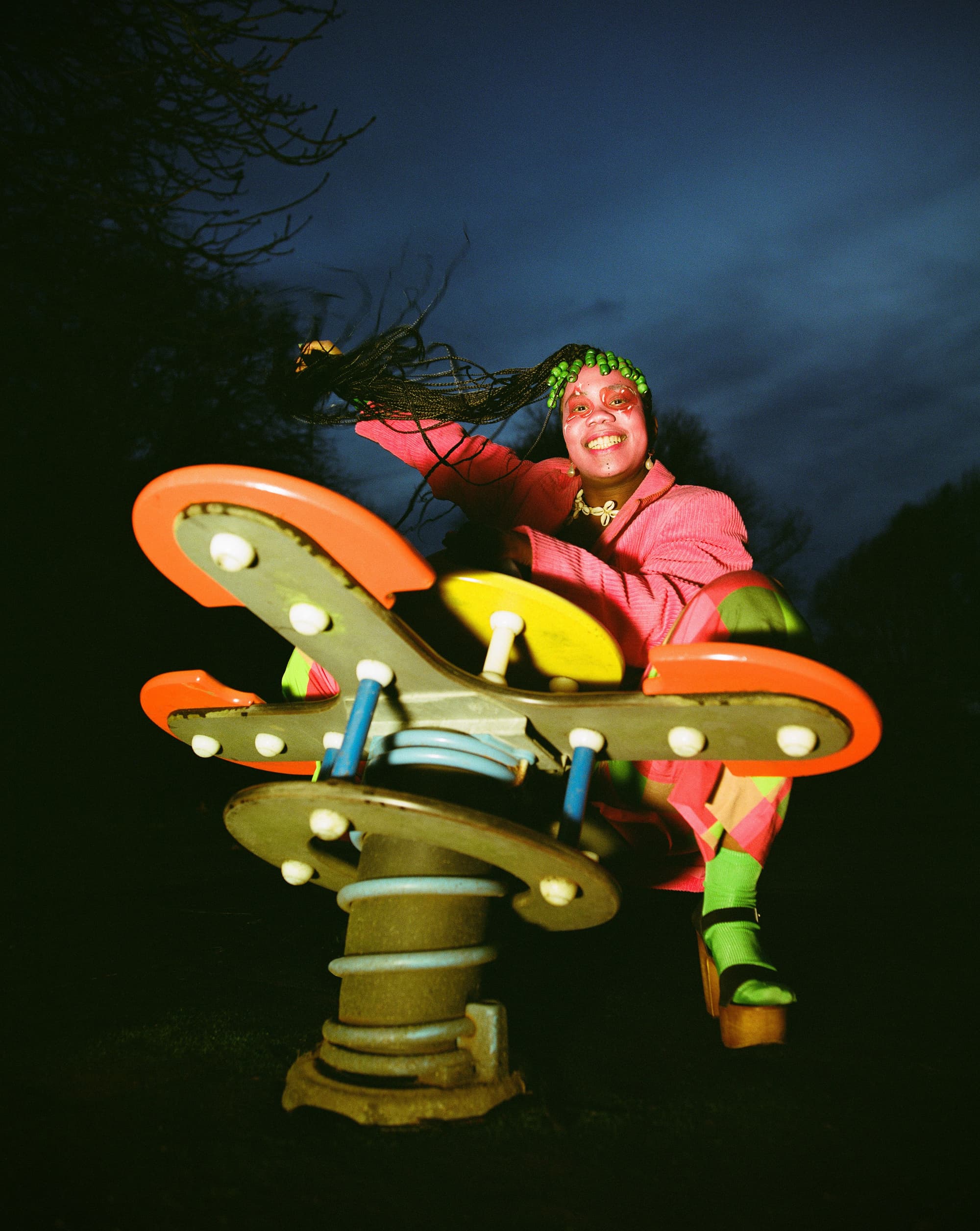
Gayance wil guide you through the untold stories of jazz in Montréal
This Friday, Darkmatter Collective in collaboration with Het Documentaire Paviljoen, will guide you through the rich tapestry of untold narratives from Black history and jazz with an immersive program, offering film, spoken word, a sonic lecture and music. During the second part of the evening, Gayance, pseudonym of Aïsha Vertus, will be taking the audience on a historical ride through jazz, departing from what some may find a surprising city: Montréal.
This Friday, art and research collective DARKMATTER Collective in collaboration with Het Documentaire Paviljoen, will guide you through the rich tapestry of untold narratives from Black history and jazz with an immersive program, offering film, spoken word, a sonic lecture and music. During the second part of the evening, Gayance, pseudonym of Aïsha Vertus, will be taking the audience on a historical ride through jazz, departing from what some may find a surprising city: Montréal.
Gayance, an emerging artist and producer, has been gaining recognition since 2013 for her original sets and self-released music. Growing up in Montréal, Canada, she has travelled extensively throughout Europe and Latin America, fostering musical and artistic connections along the way. She was raised in a musical family, with her maternal grandfather played a significant role in shaping her musical journey by introducing Haitian-Cuban influences to the church gospels and demonstrating how music can touch, gather, and uplift people. Gayance's sets take listeners on a journey through Black history, featuring vinyl from Afro-Latin jazz, the Caribbean, West Africa, and electronic music from both sides of the Atlantic.
For her lecture, she will be shedding light on Quebec's big metropole where it all began for her: Montréal, a bilingual multicultural city, composed of the many waves of immigration that it has experienced throughout history. One of those is particularly significant: the influx of Black workers from the Caribbean, and the United States during the 19th and 20th centuries that – among others – brought about a wealth of musical talent, transforming the city's cultural landscape. It even earned Montréal the nickname "Harlem of the North" between the First and Second World War.
This transformation was further fuelled by the Roaring Twenties from the previous century, a period that engendered one of the most fertile jazz scenes worldwide. American Prohibition, which lasted from 1920 to 1933, made Montréal one of the few places in North America where one could still buy alcohol legally. Consequently, many American artists left their native cities such as Detroit, Chicago, and New York and travelled north to settle in Montréal, further enriching its musical and cultural tapestry.
Honouring her elders is fundamental to Aïsha’s creative process and art. She aims to share the story of Doudou Boiciel, a cultural entrepreneur from Montréal who created the first jazz festival in the city and had an iconic venue called Rising Sun, where some of the most legendary African-American musicians would play. Boiciel's contributions were pivotal in cementing Montréal's place in the jazz world, offering a platform for artists like Nina Simone, Miles Davis, and Art Blakey. His vision and dedication provided a nurturing environment for jazz to thrive, influencing future generations of musicians and artists in the city.
Gayance wishes to pay tribute to these trailblazers. “Jazz icons such as Oscar Peterson and Oliver Jones are but a few huge names passing through Montréal” Gayance adds. “It is musicians like these that diverted from classical music, and created a new experimental and free sound, that is inherently connected to emancipatory civil rights movements.” She continues: “In that light it is particularly grating that for a long time, jazz by these Afro-American artists was being sold in record stores under the umbrella term ‘cosmic jazz’ – a loose term evoking formlessness, something so diagonally opposed to the freedom struggle underlying it. My lecture will therefore also involve critically examining some of the terminology used when speaking about jazz.”
These intersections of music and social justice are at the heart of Gayance’s interests and will shape the lecture. The subjects will prove to be an interesting continuation on the themes of Rewind & Play, the documentary film that will be screened during the first part of the evening, which carefully reworks archival material of a 1969 televised appearance of avant-garde jazz pianist and composer Thelonious Monk. The film subtly unpacks the dissonance between the musician and the white interviewer Henri Renaud, a jazz composer cosplaying as a journalist, unravelling a discourse laced with micro-aggressions and institutional racism.
Gayance will thus delve deep into the ways jazz has been both a mirror and a catalyst for social change. She plans to explore how the genre's evolution reflects broader struggles for racial equality and how its pioneers used music as a form of resistance and expression. By examining the cultural and political context of jazz, she aims to shed light on the enduring power of this musical tradition.
Friday evening will therefore offer a richly layered experience, with different disciplines feeding off each other. The combination of film, lecture, and live music will provide a comprehensive exploration of jazz’s multifaceted legacy. We highly recommend enjoying both parts of the evening. Find tickets here.
Photography courtesy of Floor Verhulst